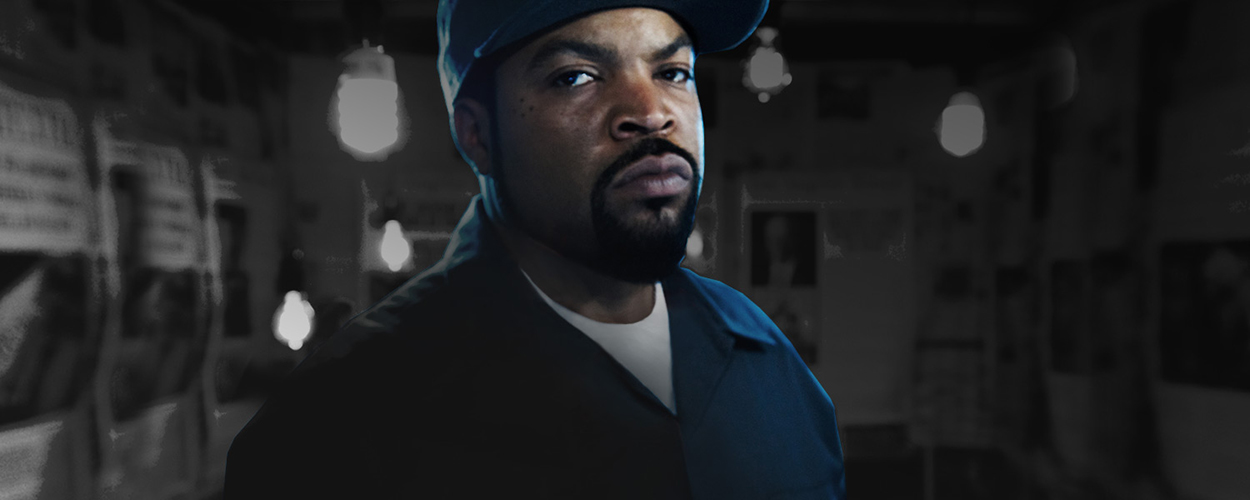This website uses cookies so that we can provide you with the best user experience possible. Cookie information is stored in your browser and performs functions such as recognising you when you return to our website and helping our team to understand which sections of the website you find most interesting and useful.
Artist News Legal Media
Robinhood seeks dismissal of Ice Cube’s legal claim over photo use with free speech arguments
By Chris Cooke | Published on Monday 26 April 2021

The company behind the Robinhood stock-trading app has hit back at a lawsuit filed by Ice Cube in which it was accused of infringing the rapper’s trademark and publicity rights via its use of a photo on its Robinhood Snacks news site.
As expected, the Robinhood company argues that it is protected from any liability for trademark or publicity rights infringement because of its free speech rights under the US First Amendment.
In March, the Robinhood Snacks website and app illustrated a story with a picture of Ice Cube, accompanied by the caption “Correct yourself before you wreck yourself”, a play on the lyric “You better check yo self before you wreck yo self” from the rapper’s 1993 track ‘Check Yo Self’.
It’s fair to say Ice Cube was not impressed with the use of that photo, which – he argued – formally linked him to the main Robinhood app which had played a key role in the whole GameStop share buying frenzy that garnered so much media attention earlier this year, and which was accused of involvement in “market manipulation” to protect the big hedge funds when it temporarily stopped trading in GameStop shares on its platform.
Though Ice Cube went beyond the GameStop hoo haa in his criticism of Robinhood. The finance firm, his lawsuit claimed, “is an unscrupulous and predatory conglomerate that professes to be a financial services company for the everyday person. In truth, Robinhood is a wolf in sheep’s clothing. It is the archetypal example of an amoral corporation that places profits over people”.
Make of that what you will, but did Robinhood infringe any intellectual property or publicity rights when it used the Ice Cube photo on its Snacks website? As the rapper went legal, the Robinhood company told reporters that it had properly licensed its use of the photo – so there was no copyright infringement – and the picture had been posted as part of editorial not promotional content.
However, Ice Cube’s litigation insisted that the Snacks website – although technically an editorial-led operation – is simply a marketing tool for the wider Robinhood business, and therefore the photo of the rapper had been used for promotional not editorial activity.
Which therefore means trademark and publicity right laws are as relevant as copyright law. The Snacks post, see, was basically an advertisement.
“The advertisement creates the false impression that Ice Cube supports and endorses Robinhood’s products and services”, the lawsuit went on. “This is especially true as the advertisement (mis)quotes the most well-known lyric from Ice Cube’s hit single ‘Check Yo Self’. In truth, Ice Cube absolutely does not, and never would, support Robinhood’s products and services”.
That’s a load of nonsense, Robinhood said in its legal response last week.
Well, it didn’t comment on whether Ice Cube would ever endorse its services. But regarding the claim Robinhood falsely implied such endorsement, that’s nonsense. Because, the finance firm again stressed, the post on the Snacks website was editorial not promotional content, so no endorsement was implied, and only copyright – and not the rapper’s trademark and publicity rights – is relevant.
The court should dismiss Ice Cube’s litigation, it said, “on the grounds that plaintiff lacks standing under federal and state law and that the complaint fails to state a claim for which relief can be granted”.
“Specifically”, it went on, “defendants’ noncommercial conduct does not satisfy the commercial use requirement for each of plaintiff’s claims, plaintiff’s claims are barred by the First Amendment, plaintiff’s claims are preempted by or conflict with federal copyright law, defendants are immune under S230 of the Communications Decency Act, plaintiff has no rights in the materials that form the basis of his claims, and plaintiff otherwise has not plead tenable claims”.
Delving a little deeper into Ice Cube’s allegations, the Robinhood response added: “The gist of plaintiff’s complaint is that he was offended by defendants’ use of an image from a movie in which he was cast … not only does plaintiff have no legally cognizable interest in the materials in which he relies, being offended is simply not enough to invoke the powers of the court”.
Its captioning of the photo with a play on an Ice Cube lyric was “a parodic use of the phrase ‘check yourself before you wreck yourself’ by changing the first word to ‘correct'”, it then said.
In doing so, “defendants conjure up the association with the popular saying and comically modify it using a rhyme scheme to identify its own editorial commentary related to the stock market … Contrary to plaintiff’s assertions, this change in wording was not a misquote; rather, defendants deliberately changed this word to effectuate the parody”.
It remains to be seen how Ice Cube – and the court – respond to Robinhood’s response.





